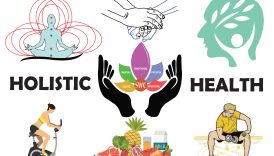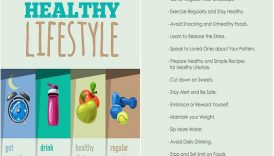The Connection Between Nutrition and Living Well

Overview of Nutrition and Living Well
Defining Nutrition and Living Well
Nutrition is not just about eating; it encompasses a broader understanding of how food affects our overall health and well-being. A well-balanced diet is essential for providing the body with the nutrients it needs to function optimally. Living well involves maintaining a healthy lifestyle that integrates proper nutrition, physical activity, and mental health management. For instance, consider a busy professional juggling work and family commitments. By switching to a meal-prepping strategy on weekends, they can ensure they have nutritious options ready throughout the week, thus promoting a healthier lifestyle among their loved ones. Key definitions include:
- The Connection Between Nutrition and Living Well
- Overview of Nutrition and Living Well
- Defining Nutrition and Living Well
- Historical Perspectives
- The Impact of Nutrition on Physical Health
- Nutrients for Physical Well-being
- Common Diet-Related Health Issues
- The Relationship Between Nutrition and Mental Health
- Nutrients for Mental Well-being
- Link Between Diet and Emotional Well-being
- Nutrition Strategies for Optimal Living
- Balanced Diet Principles
- Importance of Hydration
- Special Considerations for Different Life Stages
- Nutrition Needs in Childhood
- Nutrition in Aging Adults
- Practical Tips for Improving Nutrition and Well-being
- Healthy Eating Habits
- Incorporating Physical Activity
- The Role of Nutrition in Disease Prevention
- Nutritional Approaches to Preventing Chronic Diseases
- Impact of Dietary Choices on Immune Health
- Nutrition: The intake of food, considered concerning the body’s dietary needs.
- Living Well: Engaging in practices that lead to optimal physical, mental, and emotional health.
Historical Perspectives
Reflecting on history, the understanding of nutrition has evolved tremendously.
- Ancient Civilizations: Societies like the Greeks and Romans recognized food’s vital role in health, considering moderation key.
- 19th Century: The discovery of vitamins and minerals shifted perspectives on nutrition, emphasizing their importance in preventing diseases.
- Modern Day: Today, there’s a growing awareness of the connection between nutrition, chronic diseases, and mental health.
This historical journey illustrates how our relationship with food continues to shape our lives and health outcomes. By understanding these foundations, individuals can make informed choices that promote both nutrition and well-being.
The Impact of Nutrition on Physical Health
Nutrients for Physical Well-being
Nutrition plays a fundamental role in maintaining physical health. Nutrients, the building blocks of nutrition, are essential for our bodies to function effectively. They can be classified into six main categories:
- Carbohydrates: Provide energy, especially for our muscles and brain.
- Proteins: Essential for growth, repair of tissues, and muscle development.
- Fats: Important for hormone production and absorbing fat-soluble vitamins (A, D, E, K).
- Vitamins: Help in a myriad of bodily functions, from vision to immune response.
- Minerals: Crucial for bone health, fluid balance, and various cellular functions.
- Water: Often overlooked, hydration is vital for every bodily function.
For example, a friend who had a challenging time maintaining focus at work found that increasing their intake of omega-3 fatty acids (found in fish) significantly improved their concentration and overall well-being.
Common Diet-Related Health Issues
The impact of poor nutrition can manifest in numerous diet-related health issues:
- Obesity: A growing epidemic linked directly to excessive caloric intake and unhealthy eating patterns.
- Diabetes: Poor dietary choices can lead to insulin resistance and type 2 diabetes.
- Heart Disease: High intake of saturated fats and sugars increases the risk of cardiovascular problems.
By recognizing these potential health issues and their links to nutrition, individuals can take proactive steps to improve their diet and promote a healthier lifestyle. Small changes, such as incorporating more whole foods and reducing processed items, can lead to significant improvements in health outcomes.
The Relationship Between Nutrition and Mental Health
Nutrients for Mental Well-being
Nutrition significantly impacts mental health, with various nutrients playing crucial roles in promoting emotional stability and cognitive function. Here are some key nutrients vital for mental well-being:
- Omega-3 Fatty Acids: Found in fatty fish, flaxseeds, and walnuts, these fats are known to support brain health and reduce symptoms of depression.
- B Vitamins: Vitamins like B6, B12, and folate are crucial for brain function and mood regulation. Foods such as spinach, legumes, and eggs are excellent sources.
- Antioxidants: Fruits and vegetables packed with antioxidants (like berries and leafy greens) help combat oxidative stress in the brain, which can improve mental clarity.
- Protein: Consuming protein-rich foods can enhance the production of neurotransmitters, such as serotonin, which regulates mood.
For instance, a colleague who adopted a diet rich in these nutrients reported a noticeable lift in their mood and mental clarity, attributing their change to healthier eating habits.
Link Between Diet and Emotional Well-being
There is a profound connection between what we eat and how we feel. Several studies highlight how dietary choices influence mood and emotional health.
- Sugar and Processed Foods: A diet high in sugar and processed items can lead to mood swings, anxiety, and even depression.
- Balanced Diet: In contrast, maintaining a balanced diet rich in whole foods fosters a more stable mood and can reduce the risk of mental health disorders.
Personal experiences abound, like those of individuals who found relief from anxiety by swapping out junk food for wholesome meals. Embracing a comprehensive approach to nutrition can significantly enhance both mental and emotional well-being, highlighting the importance of nourishing not just the body, but the mind as well.
Nutrition Strategies for Optimal Living
Balanced Diet Principles
To achieve optimal living, embracing balanced diet principles is essential. A well-rounded diet not only fuels the body but also supports mental health and overall vitality. Here are some fundamental concepts of balanced eating:
- Variety: Incorporating a wide range of foods ensures that the body receives all necessary nutrients. Aim to fill your plate with colorful veggies, whole grains, lean proteins, and healthy fats.
- Portion Control: Mindful eating helps prevent overindulgence. For example, using smaller plates can trick the brain into feeling satisfied with less food.
- Regular Meals: Skipping meals can lead to nutrient deficiencies and energy crashes. Maintaining regular eating times can keep metabolism steady and energy levels stable throughout the day.
A neighbor of mine adopted these principles and found they not only felt more energetic but also had better digestion and mood stability.
Importance of Hydration
Equally important is the role of hydration in optimal living. Water is vital for virtually every function in the body, from digestion to temperature regulation.
- Daily Hydration Goals: Aim for at least eight 8-ounce glasses of water a day, adjusting for activity level and climate.
- Signs of Dehydration: Look for symptoms such as dry mouth, fatigue, and dark-colored urine. These can signal the need to increase water intake.
- Creative Hydration: Not everyone enjoys plain water. Adding slices of fruit, herbs like mint, or choosing herbal teas can make hydration more enjoyable.
Incorporating these strategies not only enhances physical health but also contributes to emotional well-being, creating a balanced approach to nutrition and hydration for a more vibrant life.
Special Considerations for Different Life Stages
Nutrition Needs in Childhood
Nutrition during childhood is crucial for growth and development. Children require a variety of nutrients to support their rapidly growing bodies and brains. Here are some key factors to consider:
- Caloric Needs: Kids have higher energy needs relative to their size. They need nutritious snacks throughout the day to fuel their activities.
- Essential Nutrients: Focus on providing:
- Calcium: For strong bones, found in dairy, leafy greens, and fortified alternatives.
- Iron: Important for development, sourced from beans, meat, and fortified cereals.
- Healthy Fats: Necessary for brain development, found in avocados, nuts, and fish.
A friend of mine shared how incorporating fun and colorful fruits and vegetables into their child’s meals led to better eating habits and a newfound enthusiasm for healthy foods.
Nutrition in Aging Adults
As individuals age, their nutritional needs shift, and certain considerations become paramount. Here’s what to focus on for aging adults:
- Lower Caloric Needs: Metabolism often slows down, requiring fewer calories but not fewer nutrients.
- Increased Nutrient Density: Focus on foods that deliver more nutrients with fewer calories, such as:
- Fiber: Promotes digestive health, found in whole grains, fruits, and vegetables.
- Protein: Essential for muscle maintenance and repair, sourced from lean meats, legumes, and dairy.
- Hydration: Seniors may not feel thirsty, so encouraging regular fluid intake is essential.
Emphasizing these nutritional needs across different life stages supports optimal health and fosters a better quality of life, showcasing how tailored nutrition is fundamental for everyone, from children to seniors.
Practical Tips for Improving Nutrition and Well-being
Healthy Eating Habits
Establishing healthy eating habits is a cornerstone of improved nutrition and overall well-being. Simple changes can make a significant difference in how one feels daily. Here are some strategies to consider:
- Plan Meals Ahead: Dedicate time each week to plan nutritious meals. This can help prevent last-minute unhealthy choices. For instance, my sister started meal prepping on Sundays and found it easier to stick to her health goals during the week.
- Mindful Eating: Take the time to savor every bite, which can help regulate portions and enhance enjoyment of food. Setting the table and eliminating distractions, like electronics, can aid in this practice.
- Snack Smart: Stock up on healthy snacks that provide sustained energy, like nuts, fruits, or yogurt, rather than opting for chips or candy when hunger strikes.
Incorporating Physical Activity
Pairing healthy eating with regular physical activity enhances overall wellness. Here are some tips for integrating movement into daily life:
- Start Small: If new to exercise, begin with short, manageable workouts, like brisk walking or light stretching. Gradually increase intensity as comfort grows.
- Make it Fun: Choose activities that are enjoyable! Dance classes, hiking, or even walking with a friend can make exercise something to look forward to.
- Set Goals: Establish achievable fitness goals, whether it’s achieving a certain number of steps each day or committing to three workouts per week. Tracking progress can provide motivation.
By adopting these practical tips, individuals can create a healthier lifestyle that incorporates nutritious choices and regular activity, ultimately promoting overall well-being and vitality.
The Role of Nutrition in Disease Prevention
Nutritional Approaches to Preventing Chronic Diseases
Nutrition plays a critical role in preventing chronic diseases, which pose significant health risks in today’s world. By adopting specific dietary practices, individuals can significantly lower their risk. Here are some effective nutritional strategies:
- Increase Whole Foods: Prioritize fruits, vegetables, whole grains, and lean proteins. These foods are packed with essential nutrients that support overall health. A family friend shifted to a whole-food diet and noticed improved blood pressure and cholesterol levels.
- Limit Processed Foods: Reduce intake of added sugars, refined carbohydrates, and unhealthy fats. These can lead to obesity, diabetes, and heart disease. Instead, cooking meals from scratch can help maintain control over ingredients and portions.
- Embrace Healthy Fats: Incorporate sources of omega-3 fatty acids, such as salmon and flaxseeds, which are known to reduce inflammation linked to chronic diseases.
Impact of Dietary Choices on Immune Health
Diet plays a vital role in immune health as well. Research indicates that certain nutrients can enhance the body’s defense mechanisms:
- Vitamin C: Found in citrus fruits and bell peppers, it’s crucial for immune function. Regularly incorporating these foods can support the body during cold and flu seasons.
- Zinc: This essential mineral, present in nuts and legumes, has been shown to boost immune response.
- Probiotics: Foods like yogurt and fermented vegetables promote gut health, which is closely linked to a strong immune system.
By making conscious dietary choices, individuals can fortify both their immunity and overall health, paving the way for a more resilient lifestyle. A commitment to nutrition not only enhances well-being but also serves as a powerful tool in disease prevention.





